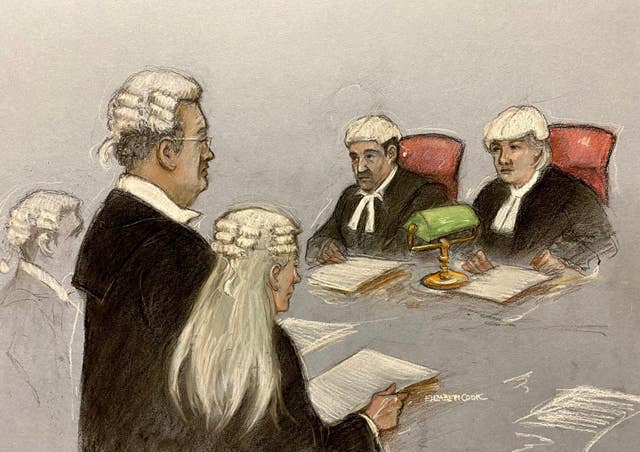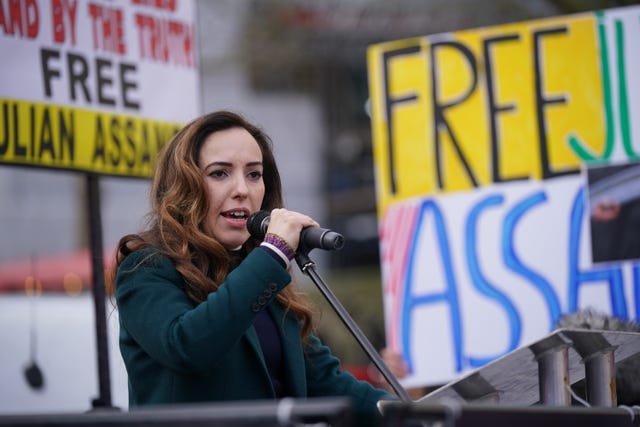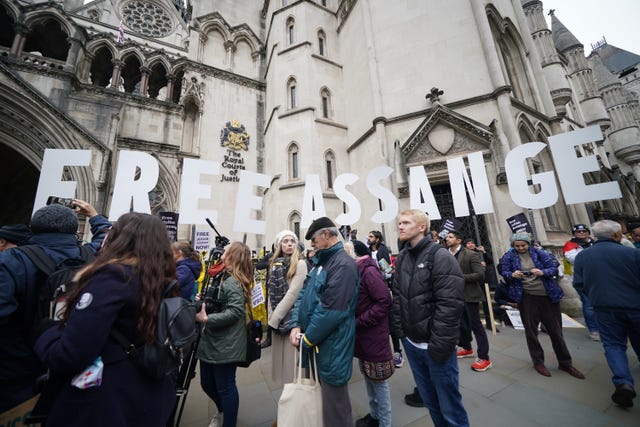The United States’ bid to prosecute Julian Assange is “state retaliation”, the High Court has heard in his final bid for an appeal in the UK.
The WikiLeaks founder faces extradition to the US over an alleged conspiracy to obtain and disclose national defence information following the publication of hundreds of thousands of leaked documents relating to the Afghanistan and Iraq wars.
In a January 2021 ruling, then-district judge Vanessa Baraitser said that Assange should not be sent to the US, citing a real and “oppressive” risk of suicide, while ruling against him on all other issues.
But later that year, US authorities won their High Court bid to overturn this block, paving the way towards Assange’s extradition.
During the first day of the hearing on Tuesday, Mark Summers KC argued the US prosecution of Assange would be retribution for his political opinions, meaning it would be unlawful to extradite him under UK law.
The barrister said: “This is a paradigm example of state retaliation for the expression of political opinion.
“The district judge did not address it, had she done so, it would have been fatal to her decision.”

“Mr Assange was one of those targets.”
Mr Summers later told the High Court in London that the US authorities had developed a “breathtaking” plan to either kill or kidnap Assange while he was in the Ecuadorian embassy, where he remained for around seven years.

Mr Fitzgerald later said Assange, who did not attend Tuesday’s hearing, is being prosecuted for an “ordinary journalistic practice”.
He told the court: “He is being prosecuted for engaging in ordinary journalistic practice of obtaining and publishing classified information, information that is both true and of obvious and important public interest.”
The barrister later described the case as a “legally unprecedented prosecution” and said that the 52-year-old faced a “real risk he will suffer a flagrant denial of justice” if he was extradited.
The first day of the hearing at the Royal Courts of Justice was attended by dozens of journalists and members of the public, with scores of supporters of Assange gathering outside the central London courthouse from 8am.
Addressing the crowd ahead of the hearing, Assange’s wife Stella Assange said: “We don’t know what to expect, but you’re here because the world is watching.
“They just cannot get away with this.
“Julian needs his freedom and we all need the truth.”

James Lewis KC, for the US, said in written submissions that Assange’s conduct is “consistently and repeatedly misrepresented” in the appeal bid.
The barrister described the amount of classified material provided to Assange as “unprecedented”, adding: “The appellant threatened damage to the strategic and national security interests of the United States and put the safety of individuals at serious risk.”
Mr Lewis, who is expected to make oral arguments on behalf of the US on Wednesday, added that the original judge ruled Assange was not being prosecuted for political reasons but “because he is alleged to have committed serious criminal offences”.
“This decision is unimpeachable and there is no error to show that the district judge got it wrong,” he continued.
He added that it was “simply not credible” that a journalist would be immune from criminal prosecution in these circumstances.
The hearing before Dame Victoria Sharp and Mr Justice Johnson is due to conclude on Wednesday with their decision on whether Assange can bring the appeal expected at a later date.






